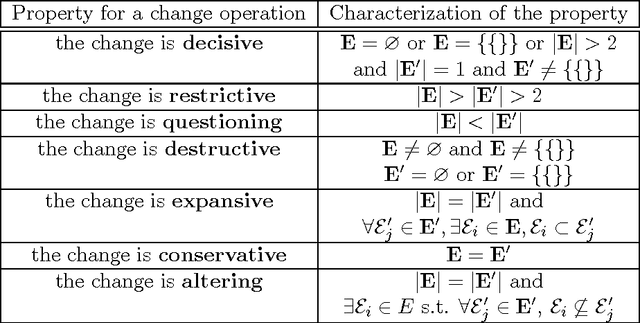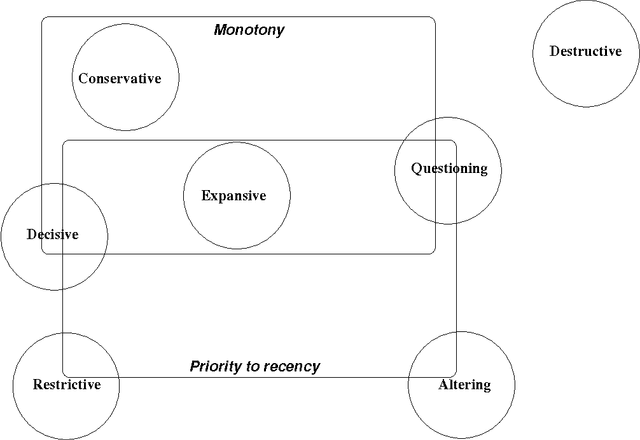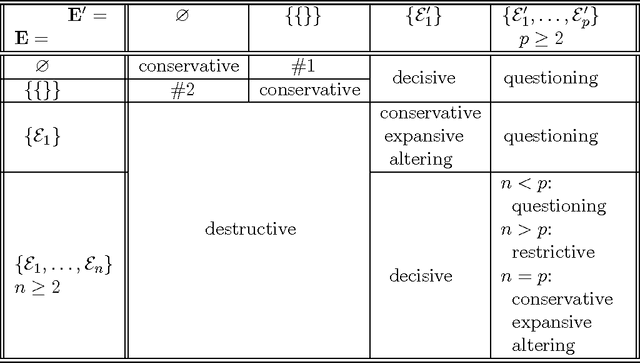Claudette Cayrol
Change in Abstract Argumentation Frameworks: Adding an Argument
Jan 16, 2014



Abstract:In this paper, we address the problem of change in an abstract argumentation system. We focus on a particular change: the addition of a new argument which interacts with previous arguments. We study the impact of such an addition on the outcome of the argumentation system, more particularly on the set of its extensions. Several properties for this change operation are defined by comparing the new set of extensions to the initial one, these properties are called structural when the comparisons are based on set-cardinality or set-inclusion relations. Several other properties are proposed where comparisons are based on the status of some particular arguments: the accepted arguments; these properties refer to the evolution of this status during the change, e.g., Monotony and Priority to Recency. All these properties may be more or less desirable according to specific applications. They are studied under two particular semantics: the grounded and preferred semantics.
On the Acceptability of Arguments in Preference-Based Argumentation
Jan 30, 2013Abstract:Argumentation is a promising model for reasoning with uncertain knowledge. The key concept of acceptability enables to differentiate arguments and counterarguments: The certainty of a proposition can then be evaluated through the most acceptable arguments for that proposition. In this paper, we investigate different complementary points of view: - an acceptability based on the existence of direct counterarguments, - an acceptability based on the existence of defenders. Pursuing previous work on preference-based argumentation principles, we enforce both points of view by taking into account preference orderings for comparing arguments. Our approach is illustrated in the context of reasoning with stratified knowldge bases.
 Add to Chrome
Add to Chrome Add to Firefox
Add to Firefox Add to Edge
Add to Edge